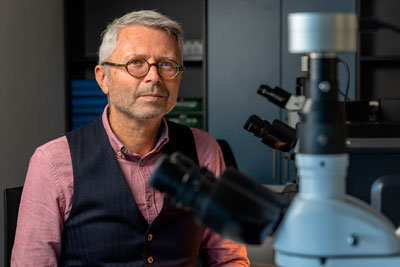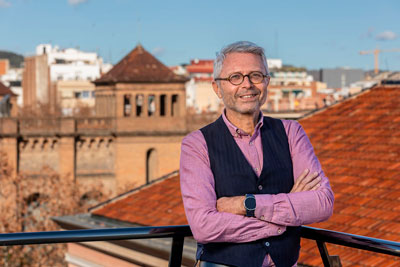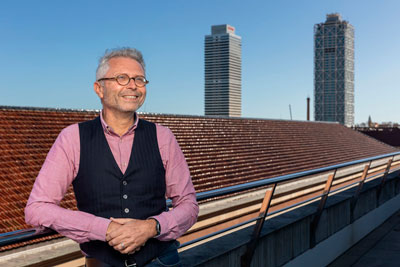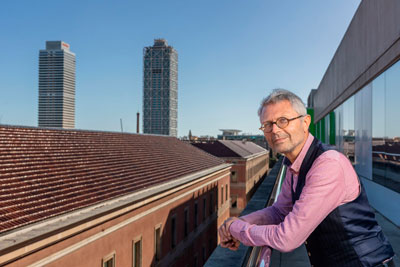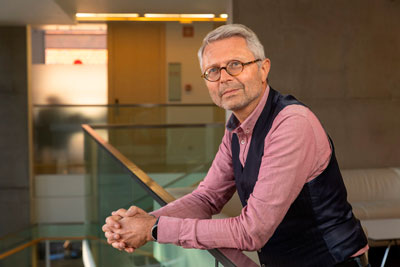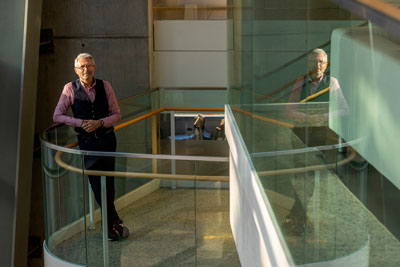Protagonista
5. Profile
Marco Madella: "The intersection of humanities and technologies can be key to tackling the challenges of planetary wellbeing"
Marco Madella is an ICREA research professor and coordinator of the Culture and Socio-Ecological Dynamics (CASEs) research group in the Department of Humanities at UPF. Specialized in archaeobotany and environmental archaeology, his main interests include understanding the socio-ecological dynamics of past human populations in extreme environments, in terms of both aridity and humidity.
Name and surname: Marco Madella
Place and year of birth: Milan (Italy), 1964
Positions: ICREA research professor in the UPF Department of Humanities, coordinator of the Culture and Socio-Ecological Dynamics (CASEs) research group and director of the Centre for Digital Humanities
Education: PhD in Archaeological Sciences from the University of Cambridge
Among the many initiatives he is involved in, Madella is the principal investigator of the Mapping the Archaeological Pre-Columbian Heritage of South America (MAPHSA) project, which has been underway since early 2023 and has received two million euros in funding from the Arcadia Fund. He is also the coordinator of the Centre for Digital Humanities (UPF-DH), at the service of all faculties, centers and departments of the Pompeu Fabra University, which will soon launch its website.
The CASEs research group participates in projects around the world, from South America and the Middle East to South-West Asia and East Africa. What is the reason for this internationalization? What do all your projects have in common?
There are several key reasons for the CASEs research group’s internationalization, which reflect the global nature of the challenges and opportunities in the field of archaeological research. This internationalization also seeks to build meaningful partnerships in order to advance understanding and help tackle shared global challenges. The projects’ geographical diversity enables a more comprehensive and enriching view of the research topics.
Our projects also tend to require an interdisciplinary perspective that draws on knowledge from multiple fields, such as archaeology, environmental sciences, technology and social sciences
Our group addresses many research topics of global importance. Issues such as heritage preservation, environmental sustainability, water management and cultural adaptations to changing conditions affect communities the world over. Having projects around the world allows us to address these challenges in a more holistic and contextualized way. Our projects also tend to require an interdisciplinary perspective that draws on knowledge from multiple fields, such as archaeology, environmental sciences, technology and social sciences.
International collaboration additionally facilitates access to experts and diversified resources, which enriches the research approach. Working in different regions of the world exposes CASEs group researchers to specific experiences and knowledge from each area. This, in turn, contributes to a fuller understanding of the local challenges and the formulation of solutions tailored to specific regional contexts.
-
Archaeological projects, including archaeobotanical ones, are often ascribed less value than projects in other scientific fields. Why is research in this field essential and what can we gain from this exploration of the past?
-
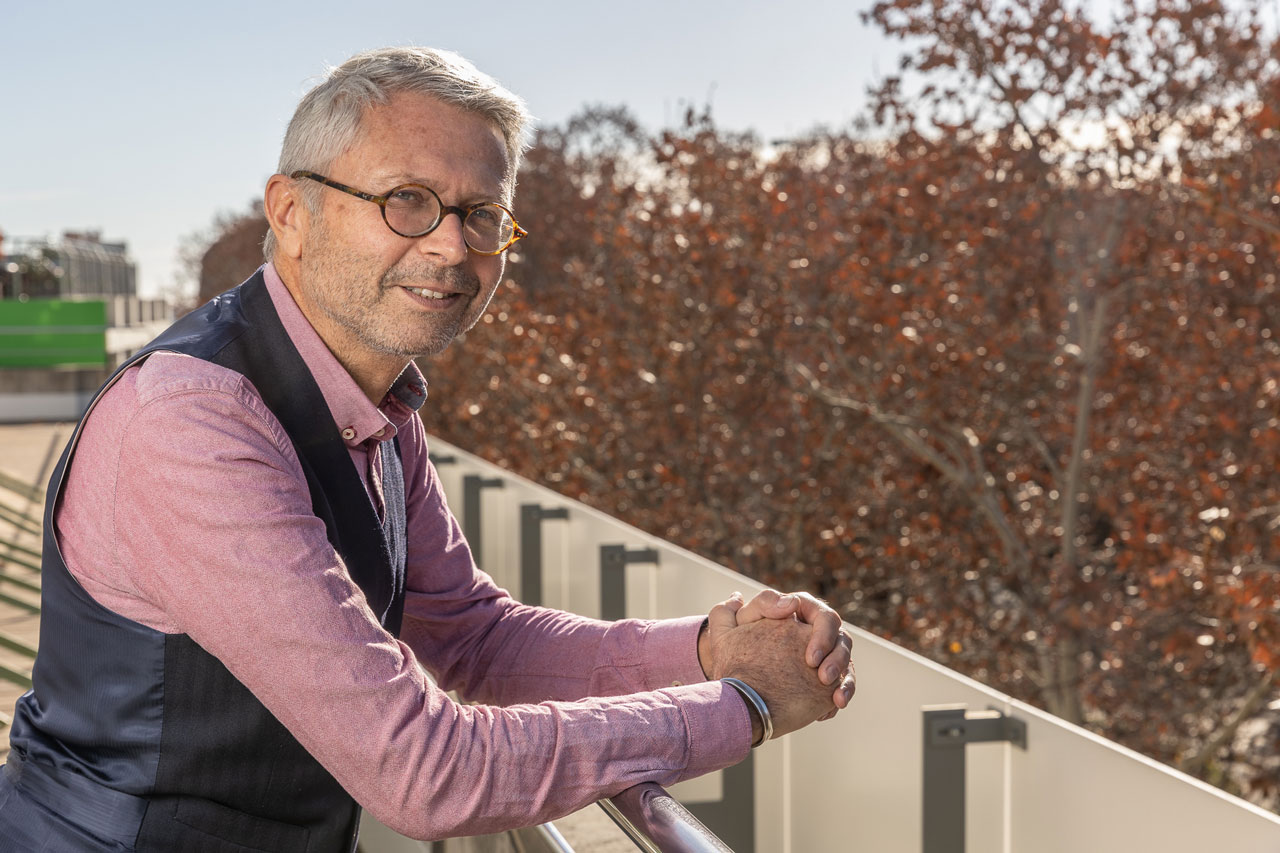
Archaeological research, including archaeobotanical studies, is key to our understanding of the past and makes several important contributions. For one thing, archaeological finds help us reconstruct human history and understand how societies have evolved over time. Archaeobotanical studies are also crucial to understanding the origins and evolution of agriculture. Analysing ancient plant remains can help shed light on both the agricultural practices used and the crops grown. It can also offer insight into ancient societies’ adaptability to changing environmental conditions, which has important implications for food security, especially in the current context of climate change. Archaeobotanical remains additionally provide valuable information about the historical biodiversity of plants and their relationship with human communities. This can have implications for species conservation and enhance our understanding of the interactions between humans and their environment.
Archaeological finds help us reconstruct human history and understand how societies have evolved over time
Despite these significant contributions, archaeological research does sometimes receive less attention or funding than research in other scientific fields. Nevertheless, its importance to understanding our history and to informing present-day decisions, for instance, concerning the sustainable management of natural resources, highlights the need to value and support this kind of research, including archaeobotanical studies.
-
-
In early 2023, UPF received nearly two million euros from the Arcadia Fund to lead the MAPHSA project, for the preservation of pre-Columbian archaeological heritage in South America, of which you are the principal investigator. Has the project already begun? What stage is it in?
-
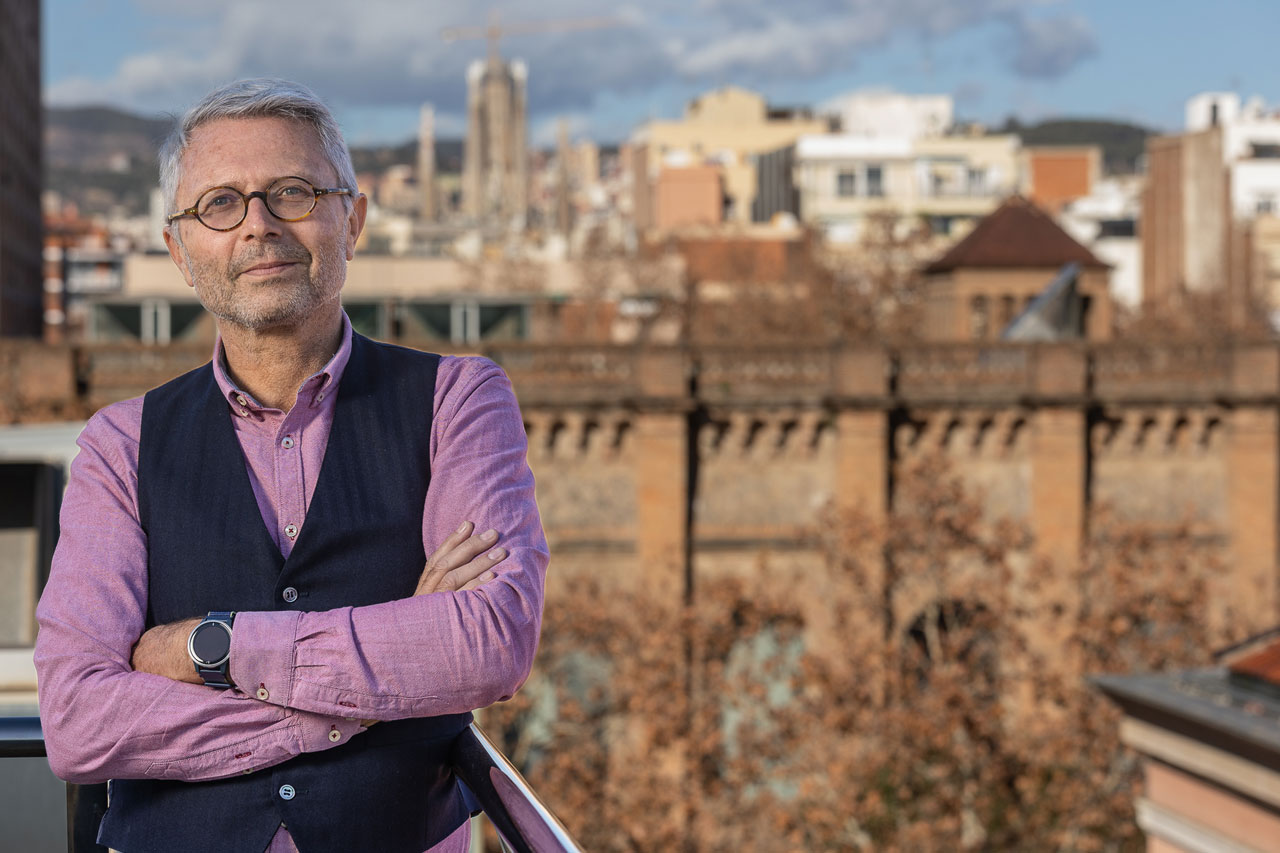
It has. The first year of work was very fruitful, and we can be pleased with our accomplishments to date. In 2023, we added 9,342 archaeological sites in Brazil and 9,317 in Colombia through the automatic analysis of pre-existing data. We also secured the inclusion of 1,796 sites that had never been published, that is, whose data were not available.
MAPHSA aims to develop an open-access database for pre-Colombian archaeological sites in Brazil and Colombia. This database is designed to integrate, from within the project itself, both existing data and new finds, which are detected using remote sensing technologies and machine-learning predictions. It uses open-source software, such as Arches and QGIS, aligned with the FAIR (findable, accessible, interoperable and reusable) principles.
We have successfully completed the initial data processing for the machine learning. Using data taken from publications, we mapped archaeological sites in rainforest areas with the aim of developing the dataset on which to train the machine learning and, eventually, automating site detection. We also plan to integrate data from deforested areas, including structures such as geoglyphs, which will be used in conjunction with historical satellite images to enable the assessment of heritage deterioration. Additionally, we are designing a proof-of-concept model with a view to using remote sensing to model the habitats of two important trees in the Eastern Lowlands of the Amazon Basin and explore their relationship with current human settlements in the Colombian Amazon.
Our field validation efforts were focused on two areas in Colombia. We used surveys and satellite images to cover a 6 km2 area in the Sierra Nevada de Santa Marta region, resulting in the documentation of 298 new archaeological sites. We then carried out three additional excavations to enhance our chronological understanding of this region. Separately, we surveyed some 5 km2 in the Ciénaga Grande de Santa Marta region, uncovering the presence of eight pre-Hispanic shell middens (geological deposits of shells and other mollusc and fish remains). Finally, our partnership with Magdalena University in Colombia focused on training indigenous communities, especially around the Línea Negra [Black Line] surrounding the Sierra Nevada de Santa Marta region, on the work done in the area and the potential benefits for the communities.
-
-
Why is it important to detect and preserve cultural heritage and knowledge?
-
Cultural heritage and knowledge are fundamental to the identity of communities and societies. Preserving these cultural expressions helps maintain a living connection with the past, whilst strengthening identity and the sense of belonging. This perspective contributes to global cultural diversity. Each community brings unique perspectives, traditions and practices that enrich the world’s cultural heritage. Heritage also acts as a means of transmitting history and traditions down through the generations, ensuring that this cultural diversity is not lost and that future generations understand their heritage. Finally, cultural heritage can play a role in sustainable development, by contributing to cultural tourism and the local economy. Appropriate heritage preservation can be a source of income and employment, without compromising cultural integrity.
Appropriate heritage preservation can be a source of income and employment, without compromising cultural integrity
In short, detecting and preserving cultural heritage and knowledge is essential to maintain the diversity and richness of humanity’s cultural heritage, whilst also promoting understanding, respect and sustainable development over time.
-
-
Do the authorities in the countries you visit apply the necessary policies to combat threats and ensure this preservation?
-
How effective policies to preserve cultural heritage are can vary considerably across countries and regions. In many places, governments and authorities have implemented policies and measures to combat threats and ensure heritage preservation. These policies may include enacting heritage protection laws, allocating funding for conservation and restoration, implementing educational programmes and collaborating with international organizations.
International cooperation and continuous engagement are essential to tackling the challenges and ensuring the long-term preservation of cultural heritage
However, there are also significant challenges, such as insufficient resources, pressure from urban development, or looting and trafficking of cultural objects, as well as natural disasters and armed conflicts, which can threaten the integrity of the heritage.
Some countries have adopted effective policies to preserve cultural heritage, although the situation can vary widely. International cooperation and continuous engagement are essential to tackling the challenges and ensuring the long-term preservation of cultural heritage.
-
-
What characteristics should the technology used in this type of research have? In what ways is it valuable and useful?
-
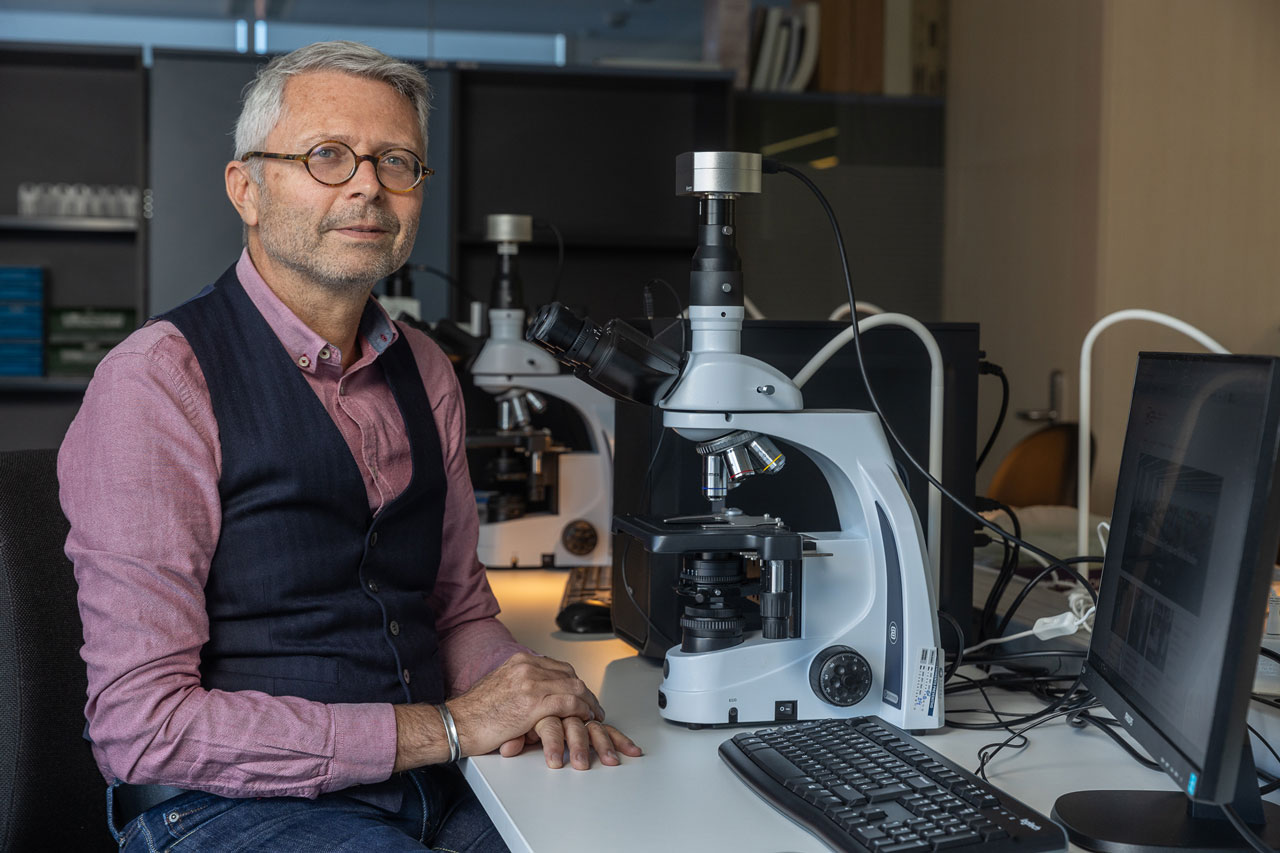
Technology plays a crucial role in heritage preservation research, through certain key characteristics, the value it delivers and its usefulness. For example, technological ‘precision’ enables the compilation of detailed data on the different heritage ‘realities’ (e.g. archaeological artefacts and sites), which is essential for documentation and preservation. Today, new technologies enable two- and three-dimensional mapping and modelling, which not only helps in the field of research, but is also essential for cataloguing, virtual preservation or the creation of digital replicas of at-risk heritage. These technologies, together with tools such as smartphone applications, augmented reality or online platforms, can be used to disseminate information about cultural heritage and educate the public, whilst at the same time promoting awareness and involvement.
Technology can play a role in security and in helping to prevent looting
The technological approach has one big advantage over other approaches: it can automate repetitive processes and speed up data collection and analysis. This enables more efficient research, increased knowledge and the timely implementation of preservation strategies. A clear example is the aforementioned MAPHSA project, funded by the Arcadia Fund, in which the volume of data to be processed (the heritage of Colombia and part of Brazil) is enormous and would be all but impossible to collect and assess manually. Finally, technology can play a role in security and in helping to prevent looting: advanced monitoring systems, including satellite monitoring, and tracking technologies can protect archaeological sites from illegal activities and activities related to climate change or the illegal exploitation of the environment (e.g. forest burning in the Amazon, which destroys not only the forest itself, but also all the heritage preserved in it).
-
-
Is artificial intelligence (AI) compatible with sustainability and social commitment?
-
Yes, artificial intelligence can be compatible with sustainability and social commitment when it is developed, implemented and used ethically and responsibly. For example, AI can analyse large datasets to predict heritage-related patterns or, for instance, climate patterns that could facilitate the adaptation to environmental changes. This is crucial both to tackling climate-change challenges and to promoting sustainability. The analysis of large datasets is valuable for heritage identification and management, which is the focus of the MAPHSA project, but also in sectors such as education or sustainable development. It also helps enable informed decision-making.
-
-
What is the current status of the Centre for Digital Humanities and what is its goal?
-
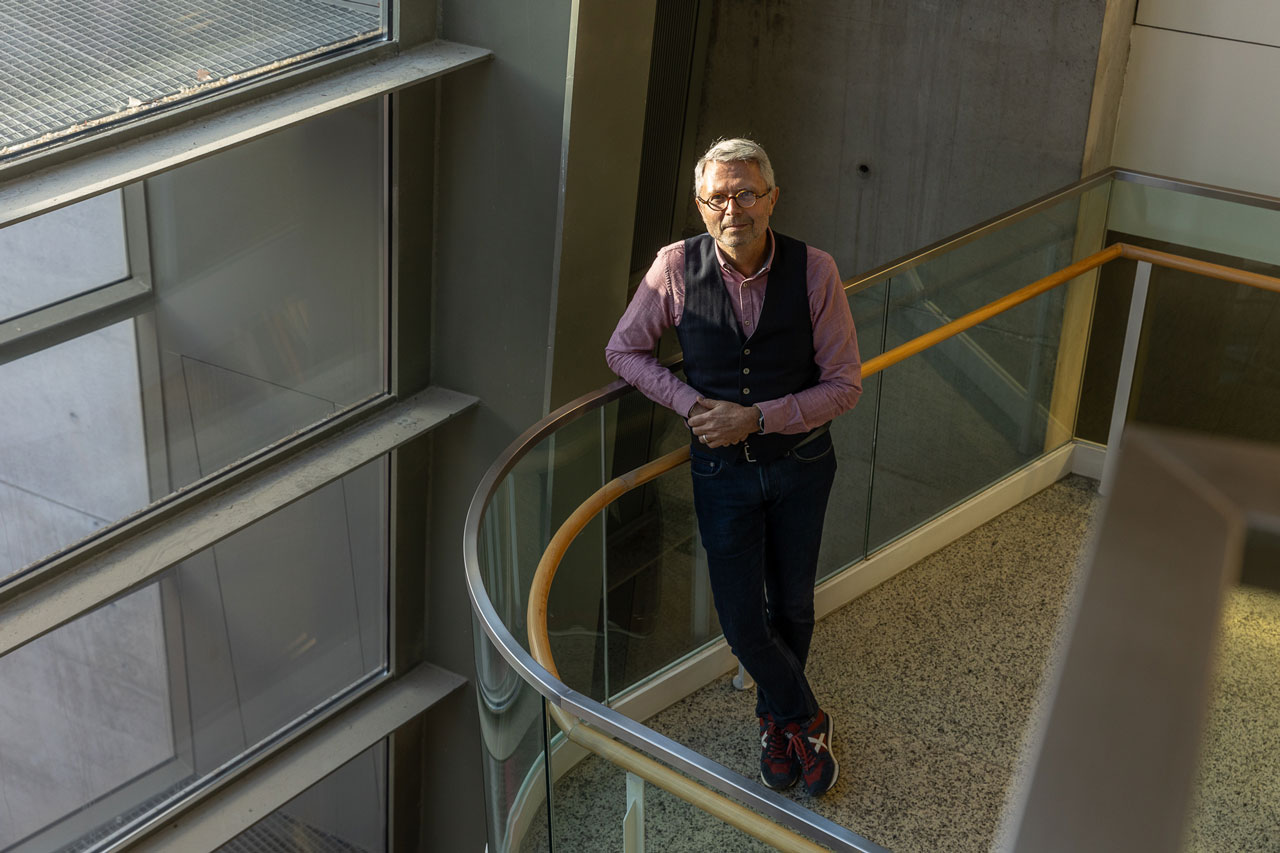
The Centre for Digital Humanities, which operates as an inter-faculty centre at UPF, is already a reality. It started off the new year launching its website. The centre connects the fields of humanities, social sciences and technology. It aims to play a fundamental role in knowledge exchange and to promote innovation, in both research and teaching and training. The UPF-DH aspires to be an intellectual centre for exploring the theory and practices of digital humanities. To this end, it will provide UPF users with the possibility of carrying out projects, as well as valuable resources, such as relevant literature, research software and training. This latter area will be targeted at students and researchers seeking to improve their use of digital and computational methods or tools in their work.
The centre is already active and organizing workshops. We hope to open a window soon, too, in collaboration with the university’s library, which is an essential part of the project’s dynamics.
-
-
Can digital humanities play an important role in the Planetary Wellbeing project, one of UPF’s flagship initiatives?
-
Yes, digital humanities can play an important role in the Planetary Wellbeing project, as well as support other similar initiatives. The intersection of humanities and technology can be key to addressing the challenges of planetary wellbeing. The first and perhaps most important way in which digital humanities can play a key role in this initiative is by facilitating interdisciplinary collaboration, providing platforms and tools to integrate data and research methods from different disciplines. This is essential to address the complex challenges related to planetary wellbeing. The incorporation of digital humanities into the planetary wellbeing dynamics reflects the understanding that technology and human sciences can work side by side to address environmental and social challenges holistically. UPF can leverage this convergence to promote meaningful initiatives in this field.
Technology and human sciences can work side by side to address environmental and social challenges holistically
-
-
The drought we have been suffering for years now reminds us more than ever that water is a limited resource and that we need to change a lot of things to adapt to climate change. Are we on the right path? What aspects should we emphasize more?
-
The prolonged drought we have experienced in recent years underscores the importance of recognizing water as a limited resource and urges us to reconsider our practices and policies to adapt to climate change. Public awareness of water scarcity and the need to adapt to climate change has clearly grown significantly. The discussion surrounding water as an invaluable resource has gained prominence on the global agenda, as evidenced at the recent COP28 in Dubai. This is a positive step. However, awareness alone is not enough: concrete and determined action is needed to address these challenges effectively.
Archaeology also allows us to identify past climate changes and how communities adapted to them
Archaeology can offer a unique and valuable perspective to understand the current water crisis and define specific actions, as well as provide insights into how past societies coped with and adapted water systems to similar conditions. Studying ancient civilizations can reveal innovative and sustainable water management systems. The irrigation techniques and strategies for water management in general implemented by past societies can serve as inspiration for water management strategies today. By understanding past agricultural practices and their impact on water use, we have the opportunity to mine them for inspiration to develop contemporary agricultural approaches that reduce pressure on water resources. Archaeology also allows us to identify past climate changes and how communities adapted to them. Such records can provide knowledge about adaptation strategies that could be relevant to current climate variations and water scarcity.
In short, archaeology can inspire us and teach us valuable lessons about historical water management, adaptation to changing climate conditions and strategies for building resilient societies. This knowledge can be thoughtfully applied to address the current water crisis and develop sustainable and effective solutions for the future.
-
-
When it comes to adapting agriculture to the new context, should we take note of the experiences of different civilizations throughout history? Are we reluctant to look to the past and assess its usefulness?
-
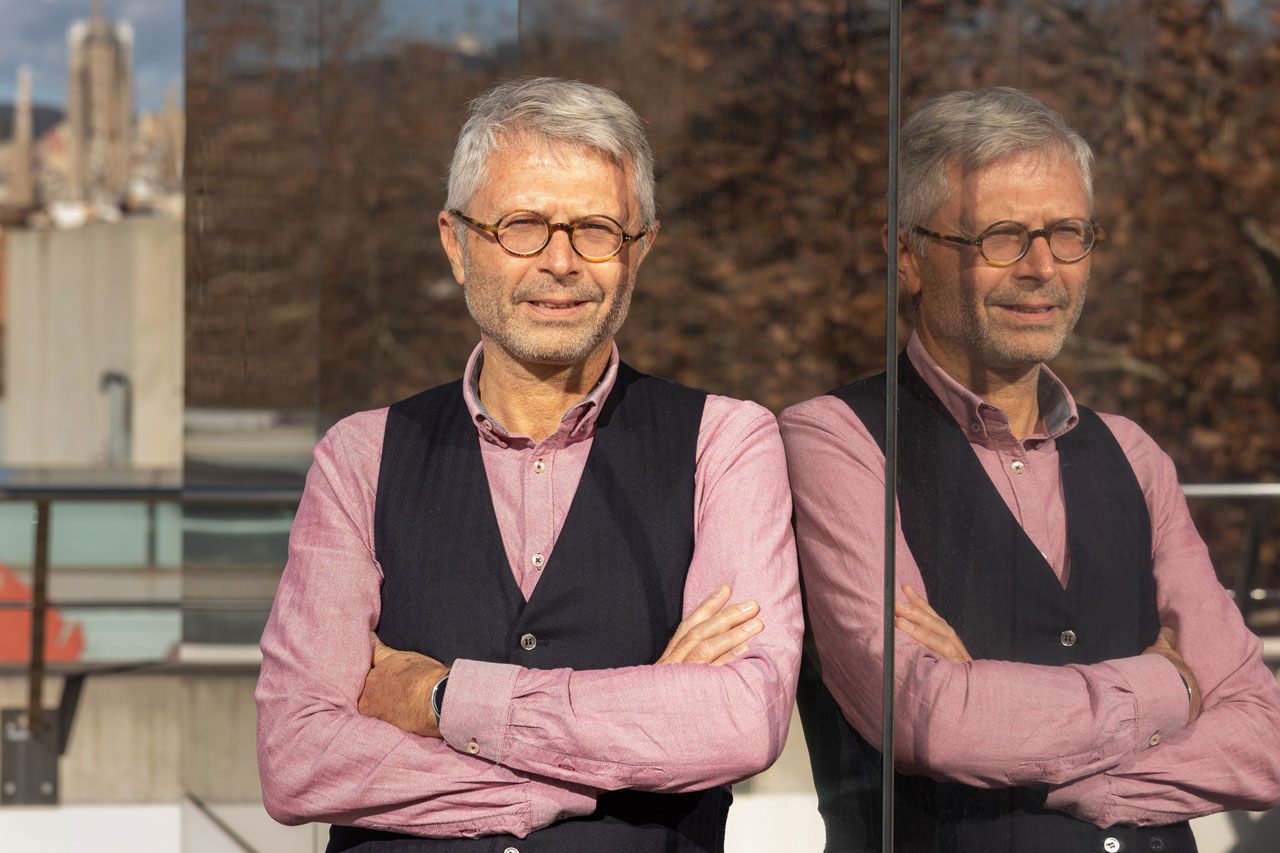
We should undoubtedly pay more attention to the historical experiences of different civilisations in terms of adapting agriculture to new contexts. Agricultural history offers us a unique perspective on how past communities managed resources, addressed similar challenges to those we face today and developed sustainable agricultural practices.
Despite the wealth of knowledge to be gleaned from these experiences, there is sometimes a certain reluctance to look to the past and appreciate its usefulness. This reluctance may be the result of a mindset focused on modernity, where there is a tendency to rely more on contemporary technological solutions than traditional practices. The rapid evolution of technology can also create the perception that ancient agricultural practices are obsolete and simply not suited to the complexity of today’s world. But ancient civilizations developed adaptive and sustainable agricultural methods that enabled them to survive over time. Studying these historical experiences does not mean replicating past practices step for step but adapting and combining this knowledge with modern technologies to address contemporary challenges more effectively.
This reluctance to look to the past can limit our ability to learn from the accumulated wisdom of centuries
So, this reluctance to look to the past can limit our ability to learn from the accumulated wisdom of centuries, causing us to miss out on opportunities to develop more equitable and sustainable agricultural approaches. Integrating traditional methods with modern innovations could lead to more resilient and environmentally friendly agricultural systems. In this sense, we must recognize the intrinsic value of the lessons (agricultural) history has to offer.
-
-
Are such changes to the agricultural system essential to ensure food in the future and prevent collapse? Should each region of the planet find its own model?
-
Changing the agricultural system is imperative to ensure the future food supply and stave off the potential collapse of the global food system. The steady growth of the world’s population will significantly increase food demand in the coming decades. Current agricultural systems, some of which rely heavily on intensive practices and non-renewable resources, may not be able to meet this growing demand sustainably. Climate change adds an additional layer of urgency. Changing climate patterns, extreme weather events and changes in water availability negatively impact the stability of existing agricultural systems. Adapting to these changing conditions is crucial for the resilience of agriculture on a global scale. Current intensive agricultural practices have contributed to problems such as biodiversity loss, soil degradation and water pollution. Shifting to more sustainable practices is essential to preserve natural resources and mitigate the negative impact on ecosystems.
Changes in the agricultural system are imperative to guaranteeing future food security and preventing collapses in the global food system
As for localized adaptation, every region of the planet clearly has unique conditions in terms of climate, land and available resources. Finding agricultural models adapted to the specific characteristics of each region is thus essential. What works well in one part of the world may not be directly applicable in another. In this context, archaeology emerges as a valuable tool, thanks to its ability to provide information on a local scale. This characteristic is especially important in the creation and diversification of agricultural models. Such an approach would enable consideration and adaptation to each region’s specific particularities and, thus, help maximize efficiency and sustainability in agricultural practice.
In short, changes in the agricultural system are imperative to guaranteeing future food security and preventing collapses in the global food system. Adapting to changing conditions and customizing agricultural models to local characteristics are likewise crucial steps towards a more sustainable and resilient agriculture.
-
-
Which actors and players have the greatest responsibility to take steps in the right direction? Can vested interests be an insurmountable obstacle?
-
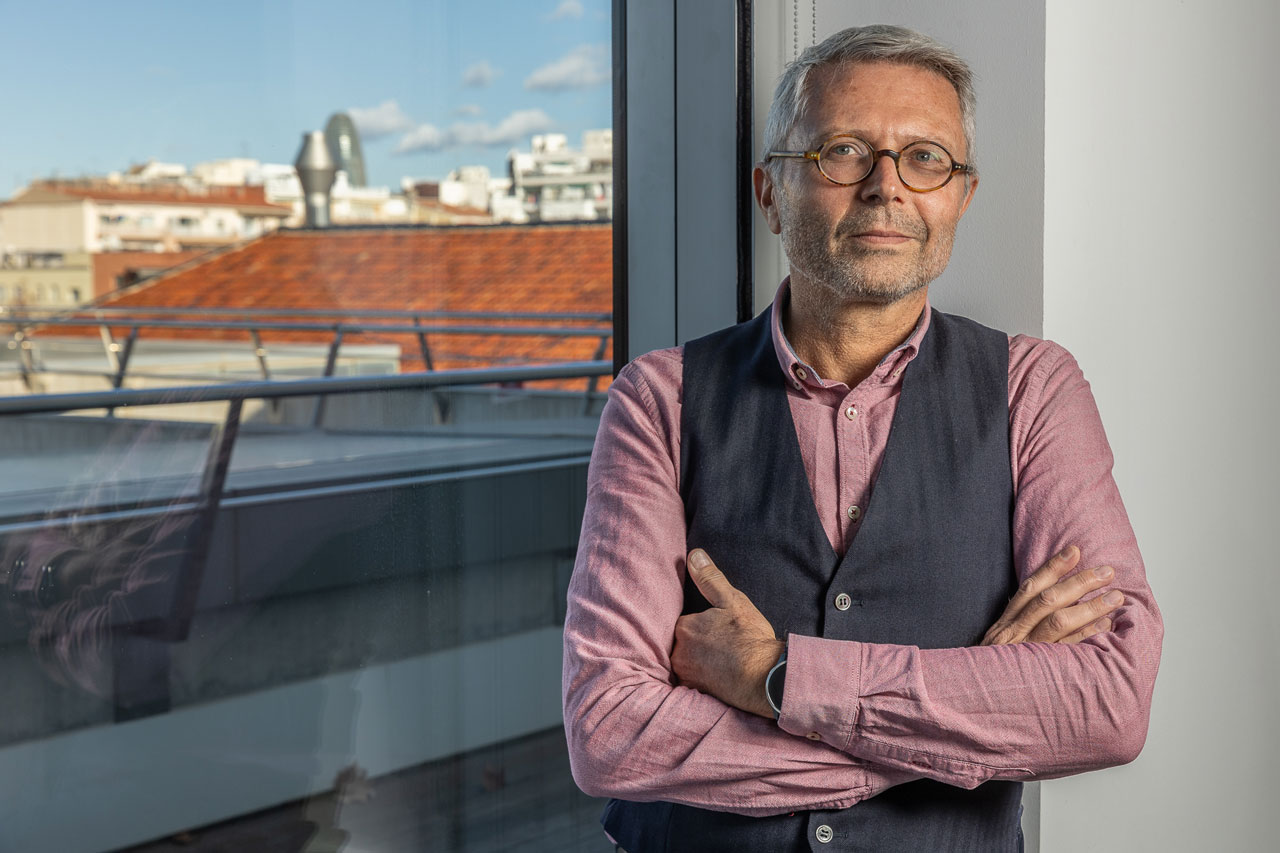
The responsibility to promote agricultural sustainability and food security lies with multiple actors, each with specific roles. Regulation and governance are essential elements to steer efforts towards a more sustainable agricultural system, whilst agribusinesses and investors have a responsibility to adopt sustainable business practices. Investment in research and development of sustainable agricultural technologies is also a crucial aspect.
Local communities, especially farmers, have a key role to play in terms of adopting sustainable agricultural practices, sharing knowledge and participating in resource management initiatives. Likewise, academic and research institutions are vital to generate knowledge and innovative technology. Agricultural education, often provided by non-governmental organizations (NGOs), also plays a vital role in training new generations in sustainable practices.
It is essential to find solutions that balance economic interests with the need to preserve natural resources and ensure long-term food security
As for obstacles, vested interests can pose a significant challenge. Agricultural systems rooted in industrial practices or linked to established business models are often reluctant to change. Short-term economic interests can clash with the need to adopt more sustainable practices and foster resilience. Overcoming these obstacles requires a collaborative approach and consensus-building. It is essential to find solutions that balance economic interests with the need to preserve natural resources and ensure long-term food security. Key strategies include awareness-raising, education and promoting incentives for sustainability, as well as learning from lessons from the past. These collective approaches are fundamental to advance towards more responsible and sustainable agricultural practices.
-
-
What role does culture play in these change processes?
-
The cultural factor plays a vital role in agricultural transformation processes. Culture, which comprises the customs, beliefs, values and practices shared by a community, exerts a significant influence on the perception, adoption and adaptation to new agricultural practices. A clear example of this is the presence of traditional knowledge passed down through the generations in agricultural culture, which can both facilitate and hinder the adoption of innovative agricultural techniques.
Understanding and respecting these cultural dimensions is fundamental to the successful design and implementation of sustainable agricultural changes
Agriculture, which is often rooted in a community’s cultural identity and traditions, can generate diverse perceptions of agricultural changes. Such changes may be interpreted as threats to deep-rooted identities or as opportunities to preserve and adapt traditions to the demands of new realities.
Understanding and respecting these cultural dimensions is fundamental to the successful design and implementation of sustainable agricultural changes. Programmes and policies have to accommodate cultural diversity, foster active community engagement and respect local dynamics to ensure effective acceptance and adoption of new agricultural practices. This culturally sensitive approach will contribute not only to the adopted initiatives’ effectiveness, but also to promoting agricultural practices that respect and enrich local communities.
-
-
Presentation
Taking care of our body and the environment in a changing world -
Community
Diversity, uniqueness and excellence: a quarter of a century researching and teaching medicine and life sciences -
Zoom
‘High-level sport has given me values such as sacrifice, perseverance and discipline, which are essential in medicine’ -
Kaleidoscope
How can engineering contribute to planetary wellbeing? -
Profile
Marco Madella: "The intersection of humanities and technologies can be key to tackling the challenges of planetary wellbeing" -
From campus
ARSENAL aims to project the university’s talent and innovation outwards -
In network
Students from around the world train in artificial intelligence through the first UPF-coordinated Erasmus Mundus programme -
Our alumni
Didac Fàbregas: ‘Data are important, but ultimately the goal is to offer people better public services’ -
Inaugural poster
Cristina BanBan: “I wanted to make a reference to the figure of Rodin’s Thinker, a symbol of the dreamer and creation” -
Quiztime
Dorothy Johnson Vaughan, space race pioneer -
Tres60
‘Thinking refuges’, an installation by Isaac Cordal that encourages reflection on progress -
Panoramic view
UPF Highlights - All 360upf magazines


